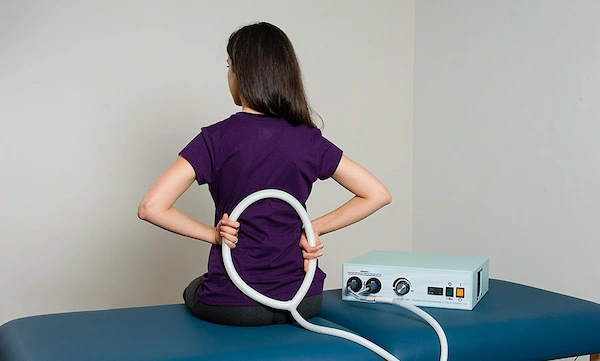Depression, a prevalent and often misunderstood mental health condition, affects millions of individuals worldwide. While it primarily manifests as emotional and psychological distress, its reach extends beyond the mind. This article will delve into the intricate relationship between depression and physical health, exploring how its symptoms can have a profound impact on the body. Additionally, it will introduce a potential therapy option, PEMF (Pulsed Electromagnetic Field) therapy, and discuss its role in managing depressive symptoms. You can visit sites like https://healthyline.com/pemf-vs-rife-how-the-two-forms-of-treatment-compare/ to learn more about the benefits of PEMF therapy.
The Connection Between Depression and Physical Health
The Mind-Body Link
Depression isn’t merely confined to one’s thoughts and emotions; it exerts a tangible influence on the physical body as well. The mind and body are intricately connected, and disruptions in one can lead to disturbances in the other. Individuals battling depression often experience a wide array of physical symptoms that can significantly impair their overall well-being.
Common Physical Symptoms of Depression
Fatigue: Overwhelming exhaustion is a hallmark of depression. It can make even the simplest daily tasks feel like monumental challenges.
Sleep Disturbances: Depression often disrupts sleep patterns, leading to insomnia or excessive sleepiness. This can further exacerbate feelings of lethargy and mental fog.
Appetite Changes: Weight fluctuations, either through overeating or loss of appetite, are prevalent among those with depression. These changes can impact one’s physical health and energy levels.
Aches and Pains: Unexplained physical pain, such as headaches, muscle aches, and joint pain, can be associated with depression.
Weakened Immune System: Depression can weaken the immune system, making individuals more susceptible to infections and illnesses.
Gastrointestinal Distress: Digestive issues, like irritable bowel syndrome (IBS), are often reported by individuals with depression.
Cardiovascular Impact: Research has shown a link between depression and an increased risk of heart disease and other cardiovascular issues.
Introducing PEMF Therapy
What is PEMF Therapy?
PEMF therapy, or Pulsed Electromagnetic Field therapy, is an innovative approach to health and well-being. It involves the use of electromagnetic fields to stimulate and heal the body at a cellular level. While PEMF therapy is gaining popularity for its application in various medical conditions, it also shows promise in managing depression and its physical symptoms.
How PEMF Therapy Can Help with Depression
Enhanced Sleep: One of the primary benefits of PEMF therapy is its ability to improve sleep quality. By promoting restorative sleep, it can alleviate one of the most debilitating aspects of depression.
Pain Management: PEMF therapy has shown effectiveness in reducing pain and inflammation. This can be particularly beneficial for individuals experiencing physical pain as a result of their depressive symptoms.
Stress Reduction: PEMF therapy has a calming effect on the nervous system, helping to reduce stress and anxiety levels. This can contribute to an overall improvement in mental health.
Improved Mood: By enhancing neurotransmitter function and promoting the release of feel-good hormones like serotonin, PEMF therapy may help alleviate depressive symptoms and boost mood.
Energy Restoration: PEMF therapy can increase energy levels and combat the fatigue often associated with depression, enabling individuals to engage more fully in their daily lives.
Enhanced Immunity: By optimizing cellular function, PEMF therapy may contribute to a stronger immune system, reducing vulnerability to illnesses.
Read Also: Uncovering The Best Massage Techniques For Improved Mental Health
Incorporating PEMF Therapy into Depression Management
It’s important to note that PEMF therapy should not be considered a standalone treatment for depression. Instead, it can complement existing therapeutic approaches, such as psychotherapy, medication, and lifestyle changes. Consultation with a healthcare provider is essential before beginning any new treatment, including PEMF therapy.
Consultation and Individualized Plans: A healthcare professional can assess the severity of depressive symptoms and recommend an appropriate treatment plan. PEMF therapy can be customized to an individual’s needs.
Integration with Traditional Therapies: PEMF therapy can be integrated with traditional therapies for depression. Combining psychotherapy and medication with PEMF therapy may offer a holistic approach to addressing both mental and physical aspects of depression.
Lifestyle Adjustments: Alongside PEMF therapy, adopting a healthy lifestyle can significantly improve depression outcomes. Regular exercise, a balanced diet, and stress management techniques can enhance the effects of PEMF therapy.
Conclusion
Depression’s impact extends beyond the mind, affecting physical health in profound ways. Recognizing the connection between depression and physical symptoms is crucial for comprehensive treatment. PEMF therapy, with its potential to alleviate physical symptoms and improve overall well-being, offers a promising addition to the toolbox of depression management strategies. However, it should always be pursued under the guidance of a healthcare professional as part of a holistic approach to mental and physical health. Remember, seeking help and exploring treatment options is a crucial step towards a healthier and happier life.
Read Also: How A Distorted Self Image Can Affect Your Mental Health







